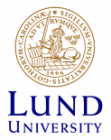Safe and energy-efficient water treatment using UV-LEDs
This doctoral project will deepen the knowledge on how water disinfection using ultraviolet light emitting diodes (UV-LEDs) can be optimized and implemented at scale. The goal is to deliver a complete strategy for disinfection of running water in point-of-use applications and water treatment facilities.
Water disinfection is necessary for safe drinking water production and is a key process in conventional drinking water purification plants. According to the WHO waterborne diseases are still among the deadliest killers known to man, and 1.5 Million people worldwide are affected annually by waterborne diseases. There is an urgent need for efficient, safe and cheap water disinfection solutions to ensure drinking water supply to an increasing worldwide population.
About the project
The project is cross-disciplinary combining competencies from water resources engineering, materials science, LED technology and electronics working jointly with the water suppliers. The project will focus on how water disinfection using ultraviolet light emitting diodes (UV-LEDs) can be optimized and implemented at scale.
The goal of this project is to generate knowledge and understanding of UV light disinfection strategies and efficacy for water treatment facilities and point-of-use applications and conduct pioneering research in this area. During the project, scalable prototypes will be designed and demonstrated in a polluted water system and the project will generate profound knowledge in materials science, design, operation, limitations and integration of UV LEDs in the entire system.
The specific objectives of this project reflect challenges faced today by the water treatment facilities in their route towards energy efficient prevention of waterborne diseases caused by bacteria, viruses and protozoa.



